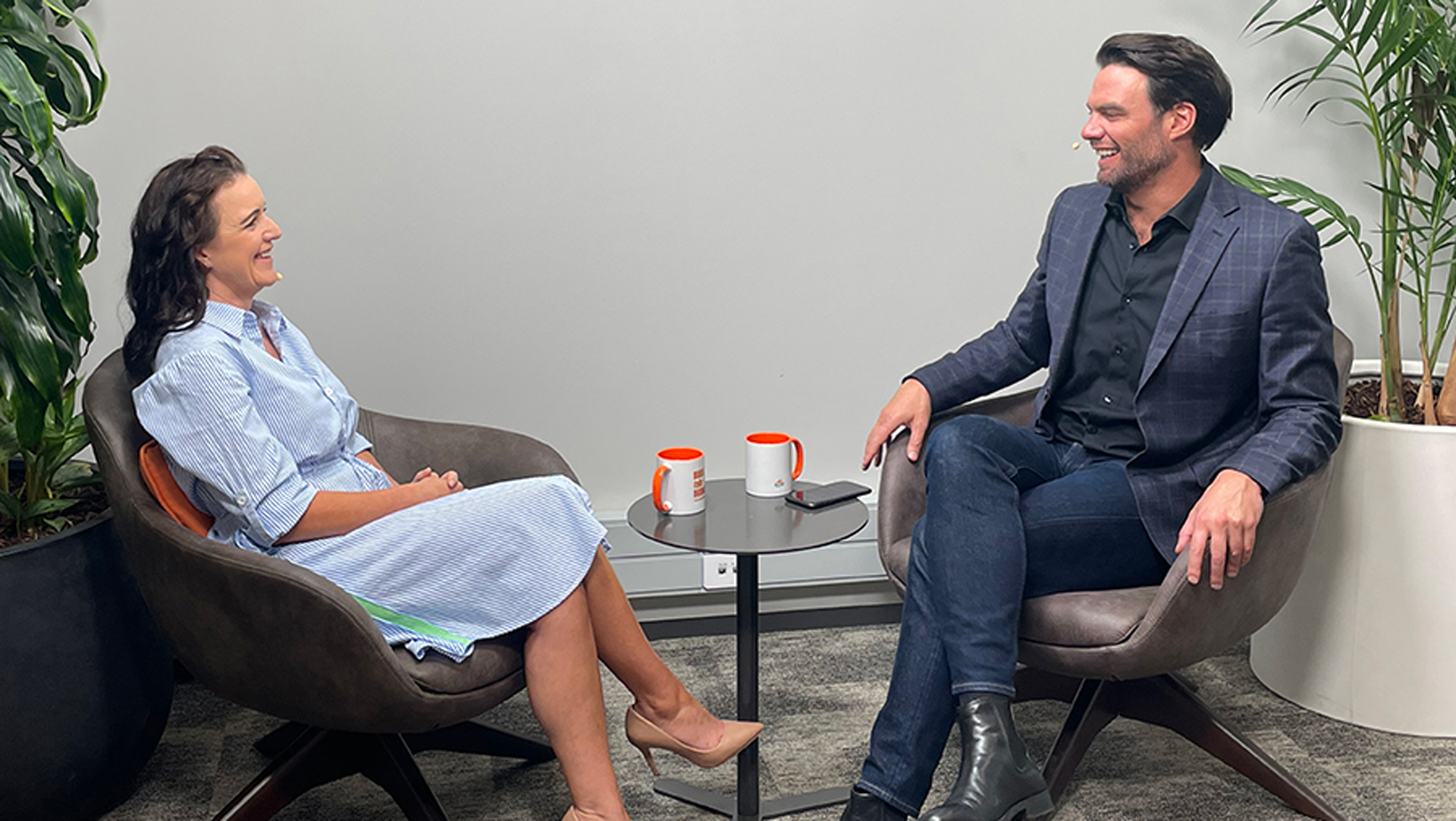From saving and spending habits to declining confidence with money, what’s really going on with Gen Z’s finances? Ryan Bridge is joined by Financial Services Council CEO, Kirk Hope, to unpack the latest research and explore how KiwiSaver could help this generation turn good intentions into lasting wealth.
Listen.
Click here to download the MP3 file or listen to the podcast on your favourite platform:
Read.
Bridge talks Business: 7 October 2025
Episode Transcript
Ryan Bridge
Kia ora and welcome to episode 51 of Bridge Talks Business with Milford. This week, we’re back to Gen Z. We crunched the numbers with Murray from Milford in episode 49 which you can go back and have a listen to. Find out how much cash you’ll retire with depending on the age at which you start chipping into KiwiSaver. For today we’ve got Kirk Hope on the show. He’s from the Financial Services Council. He’s done some research and found that young people are actually less confident making financial decisions now than they were a couple of years ago. We’ll ask why. First, your top five business bits.
1. Market reaction to the US government shutdown so far been pretty muted. The most pressing implication for investors is the lack of government stats on employment and inflation. The ingredients are in place for this shutdown to last longer than the previous record. That was 34 days during Trump’s first term.
2. In Japan, the election result over the weekend delivered a surprise win for the pro-growth LDP party. The results saw Japan equities soar, bonds and currency sold off.
3. In France, the prime minister resigned again. The country continues to struggle to form a government and pass a budget. French bonds and shares sold off on the news, but only modestly. Investors continue to grow tired of pricing and political risk there.
4. The stock market continues to thrive on AI optimism, with open AI announcing a deal to utilise AMD chips in the AI infrastructure. Now, AMD shares leapt 38% at one point and saw shares across the tech sector benefit more broadly.
5. This week, the domestic focus will be on the RBNZ, where a quarter point cut is a given. But there are some expectations of a half point cut. There is no full monetary policy statement or press conference, so the statement will be heavily scrutinised for clues and hints as to where we might be heading next.
Right, it’s time for this week’s feature episode, and we’re going back to Gen Z, and this is to talk about people who are a little bit younger, lot more time on their hands to save for retirement, lot more time on their hands to invest in KiwiSaver. So today, we’re talking to Kirk Hope. He’s the chief executive at the Financial Services Council. He’s on the podcast. And just a reminder this segment is informational only and should not be considered financial advice.
Kirk, welcome to the podcast.
Kirk Hope
Thank you.
Ryan Bridge
Good to see you. So, you’ve done a bunch of research into Gen Z’ers – why are you interested in Gen Z and what their feelings are towards finances?
Kirk Hope
Yeah well, they’re obviously the next generation of savers for New Zealand. So, we’re really interested in seeing what their attitude to savings was, and also to insurance and financial risk as well. Good to understand that. Good for them and good for the future of New Zealand.
Ryan Bridge
For KiwiSaver, they’re like natives to KiwiSaver. It’s been around since they started working because this is 18 to 25-year-olds, 24-year-olds we’re talking about, right? So, they’re quite au fait with it. Are they all contributing to it or do they just know about it?
Kirk Hope
Yeah, a really good question and something that we surveyed on. So, of the people who are enrolled, and that’s about half of 18 to 25-year-olds, 96% of those people are contributing. So, if they’re enrolled, they’re contributing, which is a pretty good stat actually. So that means those young people who have, as you say, have grown up with KiwiSaver know about it. They’re more au fait with it. 80% of them check their balances, have checked their balances. So those are all pretty good stats for New Zealand and for a culture of saving.
Ryan Bridge
And yet the research that you’ve done found that actually more of them are less confident now than a few years ago in making financial decisions.
Kirk Hope
Yeah. Which is remarkable. I mean, we see that with different cohorts of people that despite the fact that all of the findings demonstrate they are quite capable. They lack confidence. And some of that is about education. Some of it is about going and finding good advice and understanding where they can find good advice and information about what they want to do. So, it just backs up their decision making. Particularly we found that they have a lack of confidence around things like insurance, particularly life and health insurance. And it’s often because they don’t have it, they find it unaffordable or less affordable, and they are looking for more information about it.
Ryan Bridge
What’s the deal? Because you know, the confidence thing – have we all lost a bit of confidence, you know, because the cost of living shakes you a little bit, you know, financially when you’re going through an inflationary period. I mean, is everyone the same or is it young people in particular?
Kirk Hope
Yeah. In the survey, young people, certainly around 65% of them, were worried about cost of living. And that impacts their ability to do things like contribute to KiwiSaver. Although what we’ve seen there is that so far cost of living hasn’t impacted them in that way. So, they’re not withdrawing their money out of KiwiSaver. There’s 96%, as I said, contributing, which is really important. But it does mean in areas like insurance – life insurance and health insurance – they do struggle with that. So, they don’t have extra money or they don’t have money for that. What the survey found was that if they did, they would want to put more money into it.
Ryan Bridge
Do we believe that? Or is that just like the warm glow effect? Someone says “What do you want to do with your money? It’s like, oh save it”.
Kirk Hope
Well, I mean, I guess if you’ve if you’ve ever had to try and access health care through the public health system and you haven’t been able to – you’ve been on the waiting list – then that becomes problematic. We’ve been talking to the government about whether they would remove fringe benefit tax and make it more accessible for employers to provide subsidised health insurance to people – particularly young people.
Ryan Bridge
Okay. So, we mentioned the fact that this generation has probably been contributing to KiwiSaver, well those that are, from the day that they start working full-time. What difference is KiwiSaver going to make for this generation versus older generations who maybe have never even done anything with KiwiSaver?
Kirk Hope
Well, the earlier you start, the more you’re going to have at the end, even if you stop contributing and we don’t want that to happen. But the reality is the younger you start, the more that you’re going to have at the end. And so, for New Zealand, that’s going to be really, really important when these young people are getting to retirement age, they’re going to have a much, much bigger pool of money at their disposal than the people who are currently in KiwiSaver, in all likelihood – which is good for those people and good for New Zealand.
Ryan Bridge
Yeah. Can you explain that New Zealand thing? Because a lot of people say it, but we don’t ever really explain just that link between having all of this capital that’s ours – It’s not owned by other people it’s owned by us – that you can then invest into Kiwi businesses.
Kirk Hope
If you look at Australia – it doesn’t necessarily need to be in Kiwi businesses, it just needs to be providing you with a good return over a long period of time so that when you get to a retirement age, you’ve got a big pot of money. So, look at Australia – they’ve been doing it for around 30 years. $4 trillion – only 20% of that is actually invested in Australia, but that’s still a considerable amount of money, right. You know, you’re talking $800 billion or something. So, that’s a big amount of money that ends up being invested in, could end up being invested in New Zealand. So that’s why it’s good for New Zealanders. Also, you don’t want people retiring in poverty, and so if there is, you know you’ve got a personal pool of capital that prevents or means it’s much more likely that you’re going to retire in poverty.
Ryan Bridge
Kirk, what’s your message now that you’ve done this research, you’ve spoken to Gen Z’ers. What’s your message to them?
Kirk Hope
Keep going. I think keep doing what they’re doing. I think one of the things that we are calling on, calling for the government to do is create a national strategy around this stuff which brings the industry together to make sure that the settings are right for the future, because you don’t really want to be mucking around with settings for KiwiSaver. What you want is there to be a really strong, stable framework, you know, slowly increasing contributions. And that might end at some point. You know, the Australians are at 12 or 13 now. You know, we might get to 10 or 12. But, you know, you want that to be well signalled over time. You don’t want to have changes to the scheme which mean that people lose confidence in it. So, we’re saying we need a national strategy around that, and we need the industry to be involved in that – it can’t just be politicians making decisions around that stuff. It’s really, really important for the future.
Ryan Bridge
The politicians sound like they’re all getting their, you know, bullets loaded in the gun for next year for the election. Terrible analogy. But in terms of KiwiSaver, it sounds like they’re all going to come to the party with a plan. What you’re saying is they actually all need to agree on that plan too.
Kirk Hope
Yeah. And I think agree with industry, not just do it to industry. Don’t say, “this is a government scheme”. It is a government scheme, and they create the framework. But it’s really important that the industry is involved in helping decide, you know, what goes on for the future.
Ryan Bridge
That was Kirk Hope, who’s the Chief Executive at the Financial Services Council, on Bridge Talks Business this week. Thank you so much for watching or listening. We love that you do. Don’t forget you can like, follow, and subscribe wherever you like to listen. And till next time, don’t forget to invest in yourselves.
Missed previous episode? Don’t worry! Click here to catch up now.

